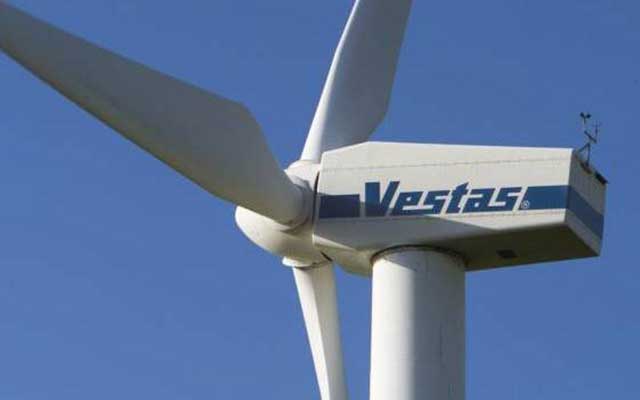Vestas expands its production footprint in the country
Bengaluru, NFAPost: The global demand for sustainable energy solutions in low and ultra-low wind areas continues to grow as renewable technology improves in efficiency and cost. This trend is especially prominent in India, the world’s fourth-largest wind energy market, where the energy demand is expected to double and the government targets to add around 100 GW wind power in the predominantly low-wind market by 2030.
To help meet the growing demand, Vestas is introducing the V155-3.3 MW turbine optimised for low and ultra-low wind conditions. The V155-3.3 MW was introduced by Vestas CEO Henrik Andersen in a
meeting today with the Prime Minister of India Narendra Modi along with Vestas’ commitment to support India’s push for renewable energy and to strengthen the country’s wind energy industry. While the new turbine is globally applicable, it initially targets low and ultra-low wind condition project in India.
Partial load production
It increases the turbine swept area by 67% in comparison to V120-2.2 MW, and with a large rotor to rating ratio, it significantly improves the partial load production in low-wind conditions. The V155-3.3 MW improves the annual energy production (AEP) by more than 3% for a 300 MW wind park with 46 fewer turbines, creating an improved level of business case certainty.
Vestas Senior Vice President of Product Management Vestas Thomas Scarinci with the introduction of the V155-3.3 MW wind turbine, Vestas is connecting our proven 4 MW platform technology with customised solutions to improve our customers’ business case in low and ultra-low wind conditions.
“With this product designed specifically to optimise energy production in low and ultra-low wind conditions, we are confident that we can bring enhanced value to our customers and partners in India and other suited markets,” said Vestas Senior Vice President of Product Management Vestas Thomas Scarinci.
Renewable energy
As the turbine will be predominantly locally manufactured and sourced in India, it reinforces Vestas’ existing commitment to the country’s growing renewable energy industry. Vestas will increase its already prominent manufacturing footprint in India by establishing a new converter factory in Chennai and expanding its current blade factory in Ahmedabad.
These investments follow our previously announced new nacelle and hub factory in Chennai, which is currently under construction. The production ramp-up will add around 1,000 new jobs within the next year to the approximately 2,600 people currently working for Vestas in India. While the expanded production setup in India will serve the growing wind market in the region, it will also act as a strategic export hub.
Vestas Asia Pacific President Clive Turton said the company has installed close to 4 GW of wind turbines in India over the last two decades and established a large production footprint, and we’re excited to leverage this as we support the government’s ambitions for renewable energy.
“With the production ramp up in India, we anticipate increased employment across our existing hubs, underlining our commitment to better support our customers and drive the country’s renewable energy transition,” said Vestas Asia Pacific President Clive Turton.
Testing and manufacturing
Vestas India Vice President of Sales Vickram Jadhav with the introduction of the V155-3.3 MW turbine, the company is able to offer improved energy production and business case certainty for customers in India’s growing wind market.
“Built on the globally proven 4 MW platform, the V155-3.3 MW features a full-scale converter delivering excellent grid compliance, faster active and reactive power during dynamic frequency and voltage events. The V155-3.3 MW has an optimised blade design customized and best suited for the Indian Wind conditions. It also features market-specific towers up to 140m hub height to meet local transportation requirements,” said Vestas India Vice President of Sales Vickram Jadhav.
With 35 GW of 4 MW platform turbines installed in 47 countries, the V155-3.3 MW has been developed within Vestas’ leading standards within the design, testing and manufacturing, ensuring customer’s business case certainty. Prototype installation is planned for the third quarter of 2021, while serial production is expected by the first quarter of 2022.




